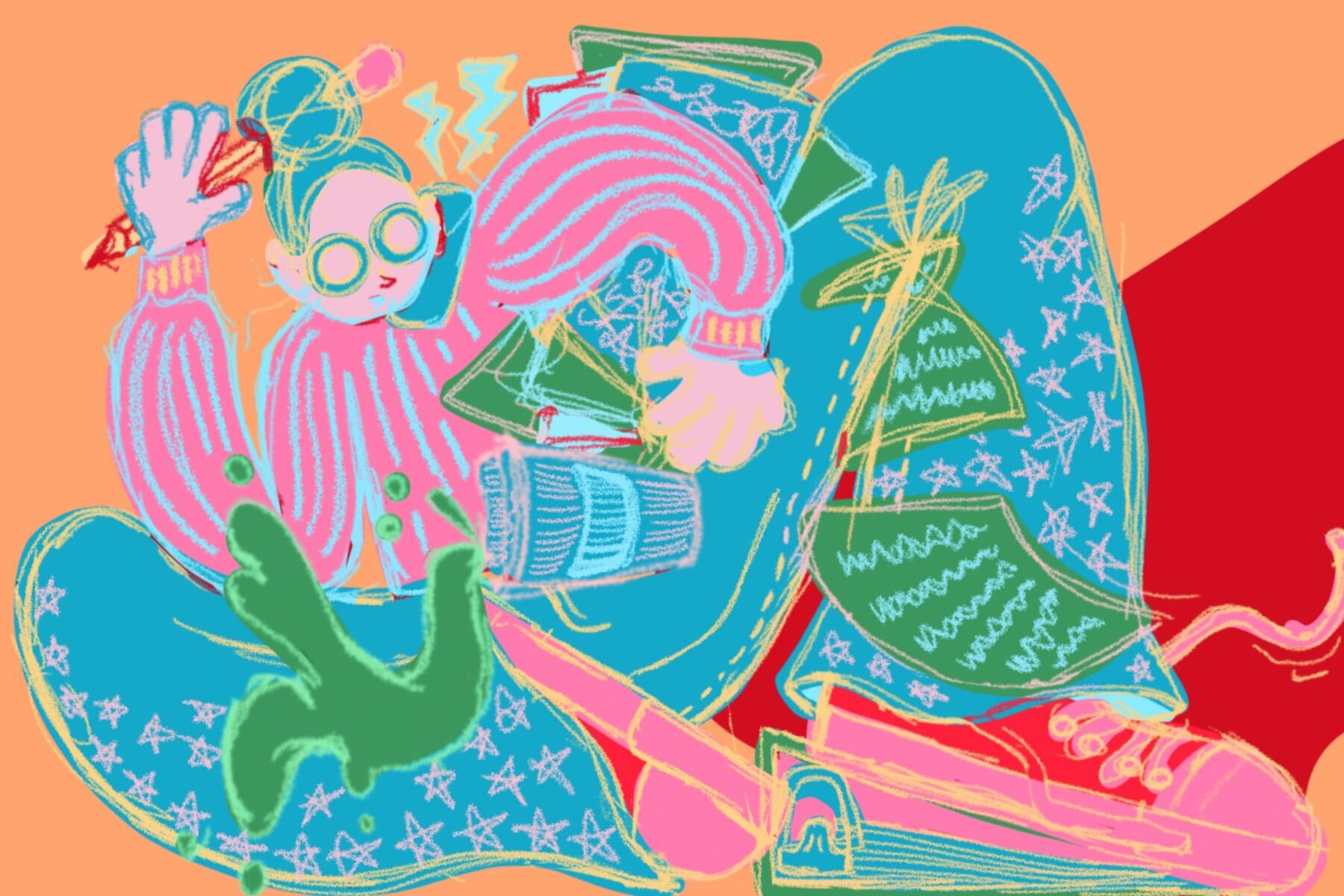In this day and age, with STEM jobs skyrocketing and jobs in humanities seemingly fading out of existence, you have to be pretty brave to pick up a history major, or devote your life to the study of literature.
We humanities majors are well aware that our starting salaries are on average 37% lower than those who study computer science and engineering, and in the current unstable economic circumstances, who knows what will become of our unemployment rate.
https://www.instagram.com/p/B-jLZFwDyV-/?utm_source=ig_web_copy_link
Whenever I introduce myself and my two majors — English writing and history — I joke that I’m majoring in unemployment to preempt those who would sneer about my “unwise” life decisions.
This social stigma around the humanities has existed since the economic crisis in 2008, and it will only intensify as we enter a new age of economic precarity. The pressure placed on those majoring in humanities is enormous; we are forced to justify our decision at every turn to skeptical parents, doubtful friends and even to the random people we match with on Tinder.
Most importantly, though, we are forced to compete fiercely to make ourselves as employable as possible.
This competition begins in high school, with the acquiring of AP credits. While the pushing of these college-level classes in high school creates opportunities for some students, especially those who’d like to graduate early from college to decrease the financial burden, it also fosters an atmosphere of competition early on as students compete for a limited number of high grades on the exams.
As AP courses have become more common as an indicator of a student’s academic achievement, even more students have signed up for these courses, creating a race to sign up for and attain credit from as many AP classes as possible. I capitulated to this pressure in high school, signing up for a total of seven AP courses and earning a total of 23 credits toward my college career.
But the race doesn’t stop there. If you’re not entering a pre-determined track, such as engineering, nursing or pharmacy, the pressure is on to double, triple, even quadruple major. If you have enough AP credits, you’ll still graduate on time — if you take on the maximum number of credits per semester and work yourself to the bone.
Because of the double major push, students are forced to decide their career path very early on in their college career in order to graduate on time with both majors fully intact.
The draw of extra majors is incredibly strong for humanities students, who always have to search for ways to make themselves more marketable. I’m lucky in that I greatly enjoy both of my majors, but many humanities students pick up an extra major — often in STEM — not to satisfy their own thirst for learning, but rather to increase their appeal to future employers, and perhaps even to satisfy disapproving parents.
But double majors have become the norm, especially among humanities students, meaning that you have to find yet another way to set yourself apart from the crowd and gain the attention of potential employers and enter internships. I am currently a sophomore, and at this point I’ve had three internships; one the spring semester of my first year, and two currently.
The first of these paid me $10 per 1,500-word article, each of which took about four hours to write, evening out to $2.50 per hour. Both of my current internships are unpaid.
I’m not here to argue against the utility of unpaid internships — I’ve learned just as much at my internships as I have in my two years of expensive college education, and I value that experience very highly.
However, so many humanities interns are left without pay because of the massive demand for humanities internships, with so many highly educated individuals vying for work experience, there’s no need to add money as an incentive.
That means those who have to earn money to pay their bills are left out in the cold, forced into jobs that have nothing to do with their major and left without any shiny relevant work experience to stamp on their resume.
Ultimately, in the race to become the most employable, no one wins. If you’ve been keeping track, you’d know that I’m double majoring and I have two internships this semester alone. In addition to all that, I’m minoring in Korean, writing stories for The Pitt News, copy editing for The Pitt News and trying to get my work published by various literary journals.
It’s not uncommon for me to work 14-hour days, and yet I know many humanities majors who go even farther than me, juggling multiple jobs, club activities, innumerable majors and minors, on top of handling the tumultuous social life of college and various side hustles.
We have been taught, by the deeply competitive economic system in which we all live, that if you want to do what you love, you must spend every moment of your existence optimizing yourself for that purpose.
Something is obviously wrong here. I shouldn’t be experiencing the symptoms of burnout at a mere 20 years of age. I shouldn’t break down into a sobbing mess in the kitchen when my roommate asks me, in passing, how I’m doing. I shouldn’t feel guilty for taking a break to eat and sleep. I shouldn’t constantly be feeling like I’m not doing enough — like I’m weak for wanting to relax.
I know I’m not the only one who feels this way. Of course, individual humanities majors will have varying experiences, but I know we all feel this pressure in some capacity. There is no single source of the problem, which makes it difficult to speak out against it, and even more difficult to offer a solution.
The problem is not economic circumstances, despite what you might think, many humanities majors are happily and gainfully employed. The root of the problem is more elusive than that, it’s a mindset that’s been reinforced all throughout our educational experience.
We would be asked what we wanted to be when we grew up, as if employment was our life’s goal. We were trained endlessly to get into college, to optimize ourselves for the admissions process, to take on multiple club activities and jobs just to slap onto a college application.
No wonder that mindset spills over into college; no wonder we have all become workaholics. There is no easy solution. We will all continue working through our exhaustion, picking up multiple internships, quadruple majoring, because that’s just the system in which we live. So it goes, so it goes.

















